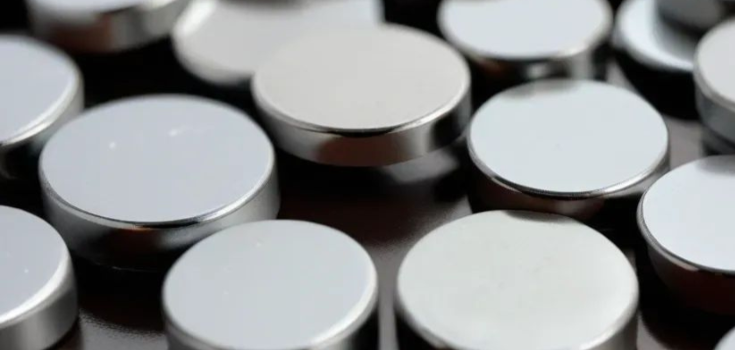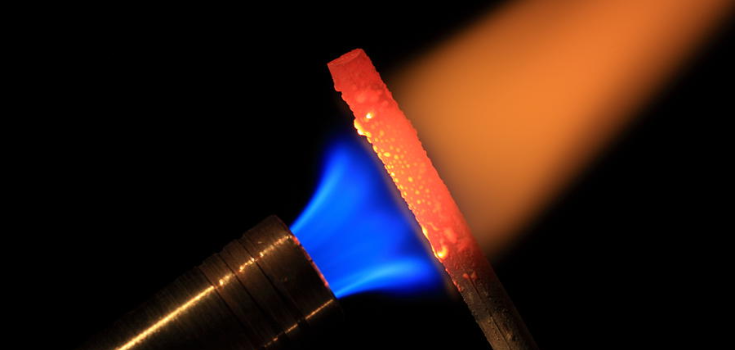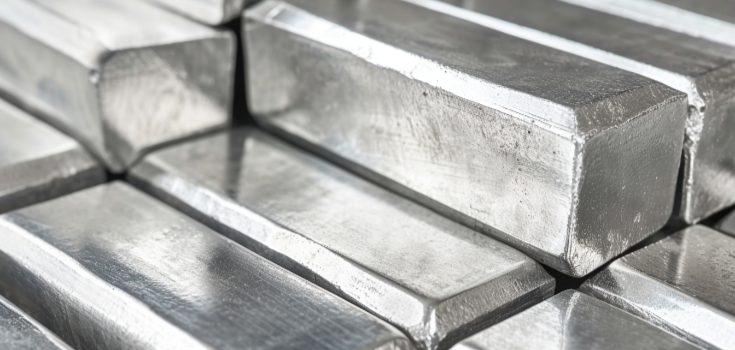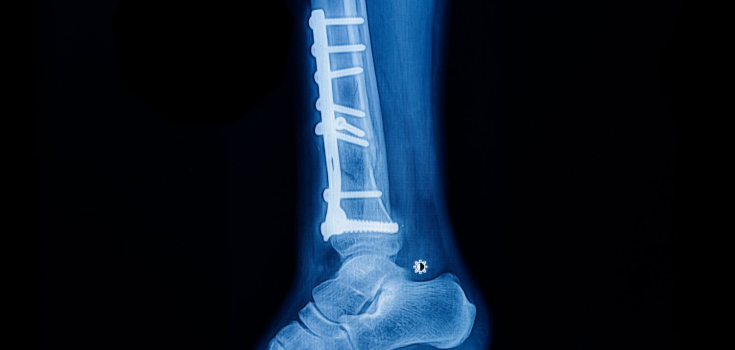- Startseite
- Blog
- Is Magnesium Magnetic: What You Need to Know
Is Magnesium Magnetic: Was Sie wissen müssen
You might be asking, “Is magnesium magnetic or nonmagnetic?” It’s a good question, especially if you’re working with materials that interact with magnets.
Magnesium is used in many industries, like aerospace and automotive. Knowing if magnesium is magnetic can help you make the right choices for your projects. Let’s look at its properties.
What is Magnetism?
Magnetism happens when electric charges move, and it’s caused by the electromagnetic force. Materials act magnetically because of how electrons spin and if they have unpaired electrons.
Types of Magnetism

Below are the different types of magnetism:
Diamagnetism: Materials are pushed away by magnetic fields because their atoms have no unpaired electrons.
Paramagnetism: Materials attract magnetic fields weakly because some atoms have unpaired electrons.
Ferromagnetism: Materials like iron have strong, permanent magnetism because their atomic magnetic moments line up.
Antiferromagnetism: The atomic spins in these materials cancel out the magnetism.
Ferrimagnetism: Materials have partial magnetism due to unequal opposing spins.
Is Magnesium Magnetic or Not?

Magnesium is mostly non-magnetic because it shows a property called diamagnetism. This means that when it is placed in a magnetic field, it creates a very weak opposite magnetic field, causing it to be slightly repelled. However, this effect is so weak that magnesium is considered non-magnetic in everyday situations.
Magnesium’s electron structure (1s² 2s² 2p⁶ 3s²) means it doesn’t have any unpaired electrons. This is why it doesn’t have strong magnetic properties. There are no permanent magnetic dipoles to align with an external field.
Magnesium Paramagnetic Properties
Magnesium ions, like Mg²⁺, can show paramagnetism. This happens because these ions can have unpaired electrons, which can cause them to behave magnetically in certain conditions. However, this effect depends on the temperature and specific conditions in the lab.
Here are some paramagnetic properties of magnesium:
Melting and Boiling Points: Magnesium melts at 650°C and boils at 1090°C.
Die Dichte: Magnesium is a lightweight metal with a density of 1.74 g/cm³. It has a silver-white appearance and can easily oxidize in the air. When placed in water, it will sink because it’s denser than water.
Stärke: Magnesium has a strength of about 130 kNm/kg. This makes it useful in areas where weight is important, thanks to the stiffness from its close structure.
Factors Affecting Magnesium Magnetism
The magnetism of magnesium can be affected by different factors, such as the following:
Temperatur

When you heat magnesium, its magnetic properties increase. But if you cool it down, its magnetic properties get weaker. This is different from other Metalle.
Magnetization
Magnetization happens when you pass magnesium through a strong magnetic field. For this to work, magnesium needs unpaired electrons to line up with the field’s magnetic moment. Magnesium doesn’t have unpaired electrons, so it can’t be easily magnetized.
Verunreinigungen
Pure magnesium doesn’t have magnetic properties because it lacks unpaired electrons. But if there are small amounts of impurities, like Eisen, cobalt, or nickel, magnesium can show some magnetic behavior.
Magnetism in Magnesium Alloys

Some magnesium alloys can have magnetic properties, depending on the alloy’s composition. For example, metals like cobalt, iron, and nickel are good alloys to mix with magnesium.
The magnetism of the alloy depends on how much of each metal is mixed in. If there’s less magnesium in the alloy, it will have stronger magnetic properties.
Magnesium alloys are also used because they resist corrosion and conduct electricity well.
Applications of Magnesium due to Non-magnetic Properties

Magnesium’s non-magnetic properties are useful in these industries:
Medizinische Industrie: Magnesium is used to make things like bone implants, cardiovascular stents, and injectable drugs.
Luft- und Raumfahrtindustrie: Magnesium is used for parts like engine fan frames, aircraft transmission casings, and airplane seat frames.
Automotive Industry: Magnesium is used to make airbag housings, gearboxes, and seat frames. You can also find it in IP beams and steering wheels.
Schlussfolgerung
You can change the physical and chemical makeup of magnesium to make it magnetic. On its own, magnesium doesn’t have magnetic properties.
The physical and chemical properties of magnesium are useful in making parts that other metals can’t make because of their magnetic characteristics.
Reach out to DEK, and we can show you how magnesium can work for you.
FAQs
Can you magnetize magnesium?
Normally, you can’t magnetize magnesium. But you can make it slightly magnetic by considering a few things. For example, heating your magnesium can increase its magnetization.
You can also add impurities like iron and cobalt to magnesium. These metals have strong magnetization effects, which can make magnesium more magnetic.
Is magnesium paramagnetic or diamagnetic?
Magnesium is diamagnetic. This means it does not have unpaired electrons and is repelled by a magnetic field, although the effect is usually very weak.
What is magnesium metal used for?
Magnesium is light and strong, so it’s used in laptops, cameras, power tools, car seats, and luggage. It burns brightly in the air, which is why it’s in flares, sparklers, and fireworks. It’s also used in iron melting to remove sulfur.
Magnesium is important for your body. It helps your nerves, muscles, and blood pressure, and helps build strong bones, DNA, and protein.
Is magnesium oxide magnetic?
Magnesium and magnesium oxide are not magnetic. Some magnesium compounds can be magnetic, but they don’t contain magnesium oxide.
